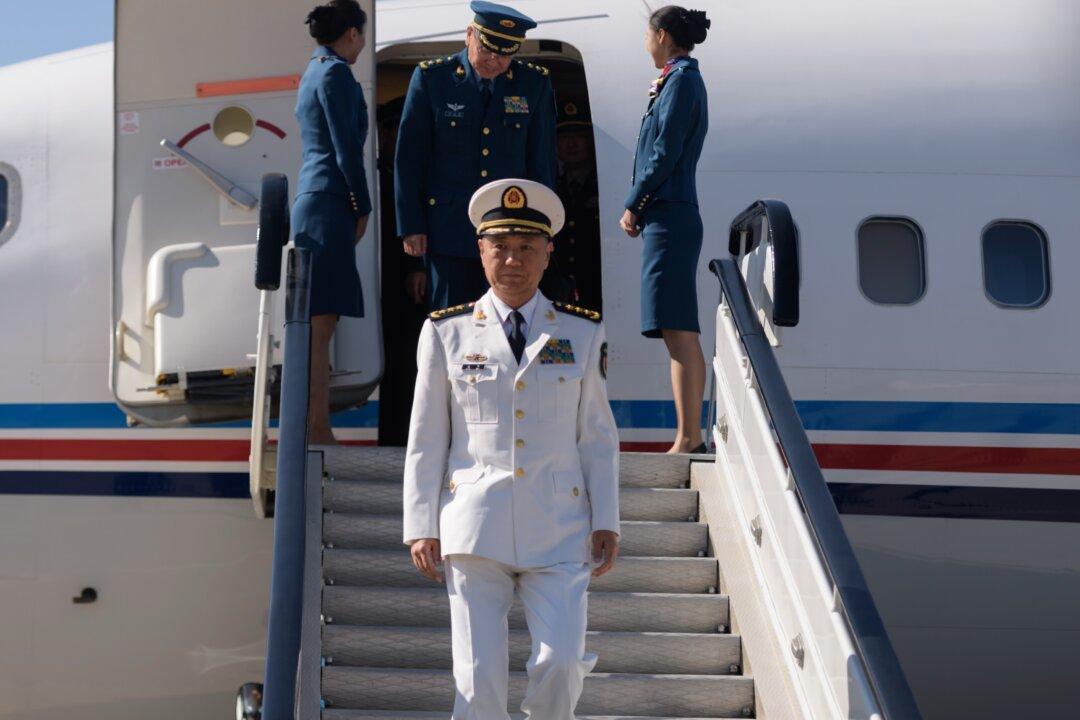The Chinese Communist Party (CCP) has suspended Adm. Miao Hua from his position on a power commission overseeing the country’s armed forces, the defense ministry announced on Nov. 28, marking the latest in a series of senior military officials caught up in the Party’s anti-corruption campaign.
Miao, who served as the director of the political work department of the core Central Military Commission, is under investigation on suspicion of “serious violations of discipline,” the defense ministry’s spokesperson, Senior Col. Wu Qian, announced at a regular briefing in Beijing. For the communist regime, this term is an official euphemism for corruption.




